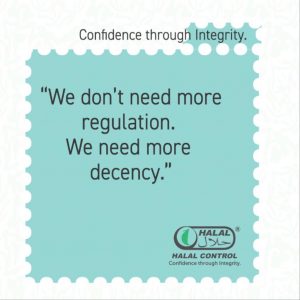
JAN 10 — Anyone can become angry. That is easy. But to be angry with the right person, to the right degree, at the right time, for the right purpose and in the right way… that is not easy. — Aristotle.
As the New Year resolution time frame is “officially” over, it’s time to air out some pet peeves for 2013, with the hope that it will have therapeutic impact if not for anyone else, then for myself. Self help is often cheaper than professional help, but if you pay peanuts, you wind up getting monkey advice!
Let’s talk about the LinkedIn agenda
Firstly, I wonder about the whole LinkedIn agenda. While I, and like many of you, are very appreciative of unsolicited endorsements from people not known on first name basis, it’s however a bit disconcerting as I have never worked or met many of these people! With so many endorsements, one wonders, if it carries any weight? Furthermore, are these good people expecting me or you to endorse them? I hope not, as an “open letter of recommendation” could dilute the reputation of both the endorser and the subject!
Secondly, at one level, all of us are generally interested in new career opportunities, and we try to reach out to or help those we have worked with over the years. The challenge is when you get unsolicited requests for job opportunities from people we never met. One is sympathetic to their plight, especially if the person has faced personal tragedies included (as that could have been you). But the reality is we are not an employment agency. But like the Lottery tagline in NY, “gotta be in it to win it”.
Thirdly, people who use LinkedIn as Twitter. Some of these people post things like their 5km runs and attending a wedding. Not sure if people really care! LinkedIn is about professional connections, opportunities, insightful articles, wonderful quotes, etc, and there are other forums for weddings, personal training or (non-rat) races.
[BTW, one of the challenges I have with Twitter is that I do not want people to know every detail about me, my doings and often times one has to apologise with a follow-up tweet because of, say, heat-of-moment comment (well, the damage has been done!). Social media has pushed the privacy attribute to a bare minimum, but some people may prefer that route.]What are we commenting on
Some of us write bylined pieces, regularly or occasionally, and hope or expect constructive or insightful feedback comments, as the collective intelligence of the market place is greater than any one of us individually. The frustration typically rears its head when (1) there are no comments (but, everybody has an opinion) or (2) personal attacks that have nothing to do with the written piece.
The lack of comments is more prevalent in Islamic finance articles, yet, at, say, conferences, we have mini-presentations from the audience members challenging a panel member or the panel session theme during the Q&A! In fairness, Islamic finance is technical, laden with Arabic lingo, requires a glossary during the read, or people can’t be bothered with the effort to reply, as finding a pen or not having spell check on PC are the usual show stoppers!
Leaders seeking medical treatment
A country’s leaders often tout the benefits the government provides for the people, from education, infrastructure, healthcare, subsidies, etc. Yet, we often read about the leader and/or minister receiving treatment at, say, Mayo Clinic in the US or world-class hospitals in western capitals in Europe. Yes, we want out leaders to be free of sickness and disease as consequences of being leaderless for a short period of time is (welcomed?) chaos!
But, what message does it send about local healthcare quality and care of the citizens when leaders and the privileged (repeatedly) go overseas for surgery and treatment?
Internet use in hotels
There are tight-wad hotels that charge for the Internet! Why don’t they charge for actual usage with a clock/timer instead of charging by the day? Thus, pay per use (PPU) would make more sense, as most humans don’t use the Internet when not in the room or sleeping, and, more importantly, it would build goodwill (for repeat business) and word-of-mouth endorsement (more effective than a marketing budget), especially if they travel for family/personal reasons.
Halal hotels and mini-bar
I’ve stayed at shariah-compliant hotels, but unsure what that really means. But it has included a conservative dress code and greetings of “Asalaam Alaikum” by the staff, alcohol/pork not served, segregated times for males/females for the pool, toilet not facing Mecca, Quran and prayer mat (in the room), etc. This will be an interesting conversation for another day.
I would like to see enlightened hotels help out the halal food industry that Islamic finance has missed. In the room’s mini-fridge, I would like to see sampling of (certified) halal food, from (healthy) drinks to candy bars, crisps, etc, during the stay. The “regular” hotels can ask the guest, much like options for a smoking room or size of the beds, if they want to stay in a “test room” with a mini-fridge that has only halal-certified offerings.
This would not cost hotel anything and is a great opportunity to test market products for companies and consumers, eventual clients. The only “payment” by the client would entail a written review of the consumed items.
Mums of super heroes
There is an urgent need to know where super heroes get their values!
In movies, toy stores, comics, prizes (value meals), there are super-heroes characters with their stories, and the move works well for the sell-side stakeholders. It’s a thriving global multi-billion dollar business, and some would say it’s the wholesale export of US culture at the expense of developing local super heroes.
[Unsure how popular The 99, Islamic super-heroes, has been received by the age appropriate children and commercials benefits of off-shoot collaterals.]It’s well known that many of the super heroes are males, from Hulk to Iron-Man to Thor to Spiderman to Batman, and such figures are almost always influenced by their mothers. The lessons these super heroes represent must come from somewhere, and it’s their mothers.
So, it would be nice if the creative people in countries like Malaysia started thinking about “Mums of Super Heroes”. Let’s assume intellectual property issues do not become an issue for the story.
I see kids connecting with their dad’s “big toys” like fast cars, cool outfits, ATM-cum-Santa policies of toy purchases, but what about their mum’s, who often have to be the bad guy and say “no”?
I would ask the creators to include a script that includes answers to following questions:
Who is the super hero’s mum?
How were they raised?
Where do they send flowers and candy on Mother’s Day or mother’s birthday?
Where did they get their powers from and when to use them, whilst keeping anger/revenge in check?
Where do they go when they have problems?
Conclusion
To become a more tolerant person, one has to air out their pet peeves in a civilised manner with the hope readers show compassion and empathy.
BTW, I will neither be biking nor hiking today, and will not be attending any marriages or divorces!
* This is the personal opinion of the columnist.



